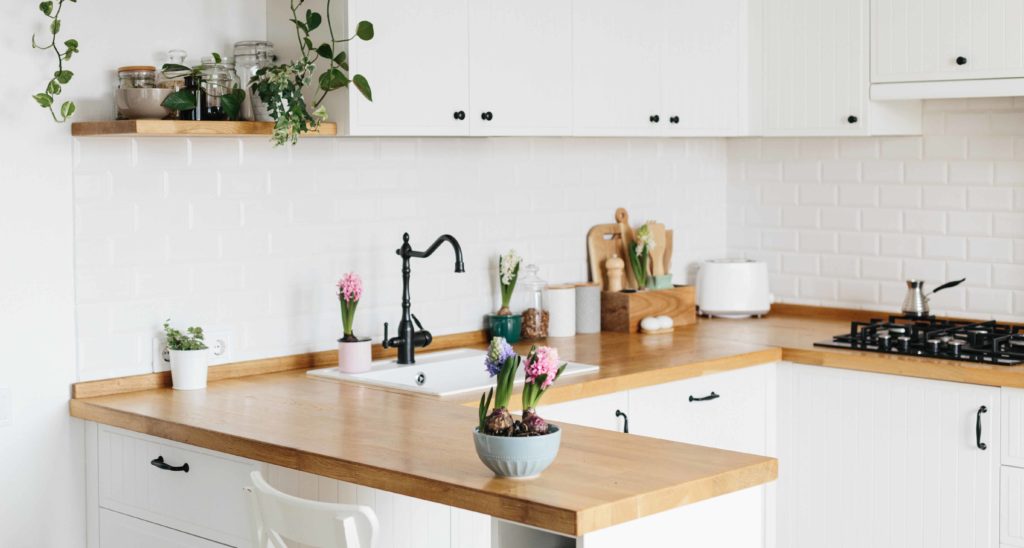If you’re on a zero waste journey at home, then the zero-waste lifestyle movement has plenty of tips to get you started. However, it’s sometimes easier to focus on a specific room at a time and identifying where you can reduce waste or replace harmful products with more eco-friendly alternatives. You can choose to begin your zero-waste journey anywhere, but a good place to start is in the true heart of your home—the kitchen
These days, many of the products we see in a kitchen are disposable—dish soap bottles, food containers, plastic wrap, sponges, cloths, paper towels…the list goes on. This, along with the plastic packaging and plastic bags that supermarkets and grocery stores still distribute, means that our kitchens are typically the single most wasteful rooms in the home.
Waste in the kitchen is a big issue, and it’s not just what you see go into the trash can, but also the waste produced from the processing and manufacture of kitchen items upstream. Reducing food waste, packaging waste, and cleaning products that often end up in landfill is a crucial element in the fight for zero-waste living—the good news is that there’s a number of innovative products that can help you on your way. Here, we look at our top ten zero-waste kitchen products so you can consume less as you cook!
No Tox Life — Zero Waste Dish Washing Block
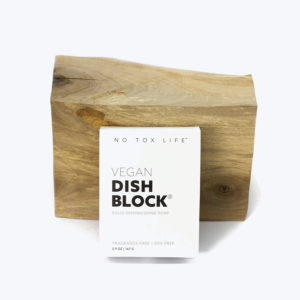
Source: zerowaste.com
One of the most common (and useful) products in the kitchen is dish soap. Many of us use it every day, but unfortunately, the vast majority of products from popular brands still contain chemicals that can be harmful to the environment. These chemicals such as sulfates along with parabens can affect waterways and have harmful effects on you and your family’s health.
Additionally, most dish soaps usually come in single-use plastic packaging, which is at best recycled and at worst ends up in landfills and our oceans. Thankfully, there are now alternatives, and the No Tox Life dish washing block has been made to cut out both harmful chemicals and plastic package. This solid 5.9oz bar sidesteps the use of plastic bottles all together while at the same time lasting a long time. It’s also vegan, sulfate-free, paraben-free and palm oil-free making it not only a zero-waste kitchen essential, but healthier and more environmentally friendly in general.
Clean Planet Ware — Natural Mayan Loofah Scrubbers
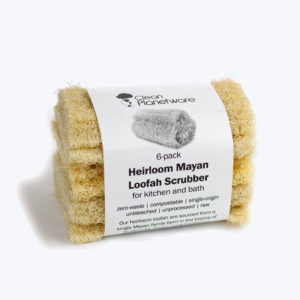
Source: zerowaste.com
What do you use to clean your dishes? Most people will say sponges, but those aren’t real sponges—real sponges are completely natural, coming either from the ocean or from plant called Luffa aegyptiaca. More often than not, what we use in our kitchens today are synthetic imitations made of polyester and packaged in more plastic. However, in the past, natural sponges were much more prevalent (and eco-friendly).
The beauty of the zero-waste movement is that it recognizes that sometimes the old ways are best, and there’s no exception in the kitchen. With this in mind, Clean Planet Ware’s natural loofahs are 100% plant fiber and are grown using traditional methods, free of both pesticides and herbicides. They come in a pack of six with each loofah compressed for shipping (they expand when in contact with water) making them a great alternative to traditional kitchen sponges that are based around plastic.
Khala & Co Beeswax Food Wraps
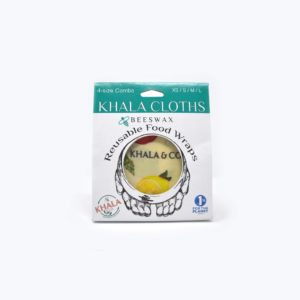
Source: zerowaste.com
Plastic wrap has been a food-storage staple since the late 1940s, and our addiction to this rarely recycled plastic means that it appears in our lunch boxes, in our fridges, and just about everywhere else in the kitchen. Sadly, this single-use, short-life plastic sheeting is highly wasteful, and its proximity to food means it is difficult to recycle, as it is often dirty.
The alternative is reusable beeswax food wraps, which can be cleaned and used over and over again. Made to store food, whether that’s for a school lunch or a picnic, these beeswax wraps are also completely natural, meaning your food is never in contact with potentially harmful chemicals. Beeswax wraps can last about a year or longer and when they begin to show wear, they can be cut into small pieces and placed in your compost bin. If using a local or commercial composter, check in with them first before placing tossing in your organics bin.
Totally Taylored — Reusable Paper Towels
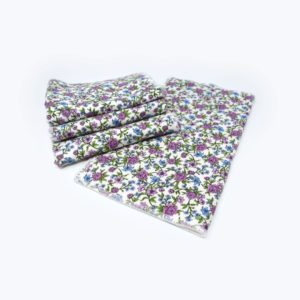
Source: zerowaste.com
When it comes to napkins and paper towels, looking backwards to push forwards is absolutely necessary. Traditionally made of cotton and designed to be washed and reused, somewhere along the way we switched to paper, creating an entirely unnecessary waste stream. It doesn’t have to stay that way though, and Totally Taylored Reusable “Paper” Towels are actually taking it one step further by creating their towels from upcycled fabric, helping to keep textile waste out of the landfill as well.
These reusable towels are shipped in a set of four and come in paper packaging so it can easily be recycled. When they are ready for a good cleaning, throw them in your washing machine, let them dry and reuse them! In short, you don’t need to look any further than these zero-waste kitchen towels for your zero-waste kitchen.
Mason Jars Storage Containers
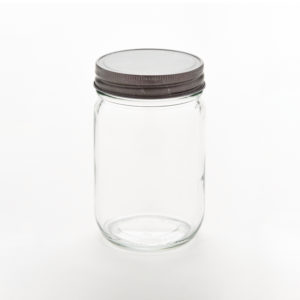
Source: .jarstore
Sometimes it’s the simple things. Mason jars have been around for over a century, and continue to be the iconic reusable container. For food storage, there’s no limit, and you can use them for everything from dried seeds, nuts, and grains to sauces, pickles, and more. These glass jars come in all shapes and sizes so you’re sure to find the perfect one for your needs.
There are several brands of these glass containers, so search around and find the one that’s right for you—whether that’s a classic screw-top for long-term storage or a rubber-sealed clasp for your daily oats. What’s more, many zero-waste stores will allow you to directly fill jars with produce, making these classic containers a zero-waste kitchen essential.
ECO-BAGS Reusable Produce Bags
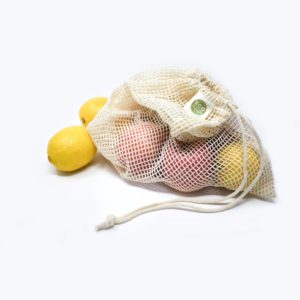
Source: zerowaste.com
Working towards zero waste in the kitchen can begin before you’ve even made it back home. In fact, if you haven’t already ditched the plastic produce bags or shopping bags, you may soon be forced to. Today, however, there’s a wealth of choice when it comes to reusable product bags, and you can take your pick when it comes to shape, size, and style.
Now instead of separating all your fruit, veg, and other bulk foods into thin, disposable plastic bags, you can put it in these organic cotton mesh bags, which come in a variety of sizes. Super-durable with a drawstring design and machine washable, certified organics produce bags are made to last.
Vejibag — Vegetable Storage Bags
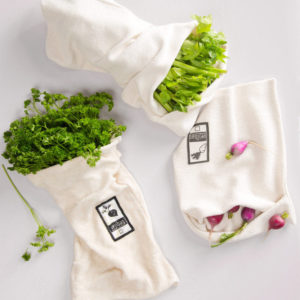
Source: vejibag
When you get your produce home, keeping it in plastic containers or bags can make it expire sooner. Vejibags have come up with a solution that is “100% organic French terry cotton, grown by the Texas Organic Cotton Marketing Cooperative, and hand-sewn by employee-owned Opportunity Threads, in Valdese, North Carolina.”
These produce bags keep your veggies fresh and tasty for longer by ensuring they are exposed to the correct amount of moisture. This reduces the amount of plastic you use as well as the amount of food waste that you produce from vegetables going bad in the fridge or on your counter. It’s a win-win all around.
Zero Waste Club Reusable Coffee Filter
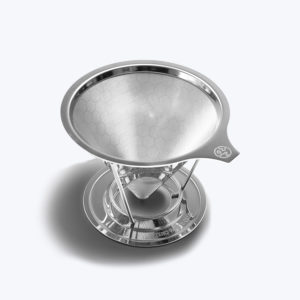
Source: thekindstoreonline
It’s time to move on from disposable paper coffee filters. There are many options to go with, from cotton coffee “socks” to silk bags and, as shown here, stainless steel metal filters. These filters from Zero Waste Club are made from 70% recycled steel, are easy to clean and come packaged in a recycled kraft paper box.
What’s more, the Zero Waste Club plants one tree for each order you place, making these package-free filters a top zero-waste choice for anyone who wants to give a little something back! And remember, those used coffee granules shouldn’t be thrown into the trash since they can be used for plenty of other things, as well as being great for your garden, which brings us on to our next zero-waste kitchen essential.
Living Composter
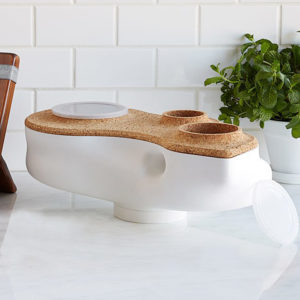
Source: uncommongoods
https://www.uncommongoods.com/product/living-composter
Decentralized composting is a big part of the zero-waste movement, reducing our reliance on municipalities doing it for us. So, for the true zero-waste kitchen, a living countertop composter can make a huge difference. This model by Uncommon Goods offers a stylish and practical solution for those in smaller living spaces who perhaps don’t have access to larger, outdoor composting.
The cork-topped composter uses worms to turn food scraps into usable compost with the ability to “process over two pounds of food a week.” There are other options out there, but the sculpted design of this model wouldn’t look out of place at MOMA, so will certainly spruce up any zero-waste kitchen.
Charcoal Water Filter
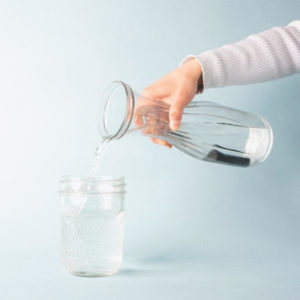
Source: packagefreeshop
Many people concerned about their health, what goes into regular drinking water, or who just like the taste of cleaner water will use a filter. However, the most common types often use bulky plastic cartridges which run out after a set number of uses and have to be thrown in the trash. In fact, these gadgets are just another unnecessary source of plastic waste that we can easily cut out.
Try charcoal sticks instead, which you simply place into a water bottle or jug and leave. They will naturally remove impurities while also adding healthy minerals like calcium and magnesium to your water. Keep a few on hand at any given time as they need about 12 hours to do their magic, however, you’ll soon have clean water with zero plastic waste.
Stay tuned to the blog for more zero-waste tips for your kitchen, your bathroom, and the rest of your house. Additionally, subscribe to zerowaste.com today or chat with one of TRUE Advisors to get more insights on how your business can work towards zero waste.
*We only feature products that we recommend and believe help you on the path towards a zero waste lifestyle. This post contains affiliate links – If you click on an affiliate link and make a purchase, we may receive a small commission at no additional cost to you. See our full policy here.*

